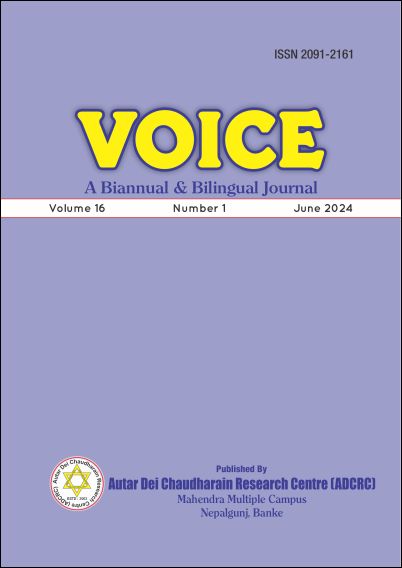Reading Comprehension Ability of Tharu and Non Tharu Students
DOI:
https://doi.org/10.3126/voice.v16i1.67424Keywords:
Academic performance, Cultural factors, Education equity, Multilingualism, Tharu studentsAbstract
Reading comprehension is crucial because it enables students to understand, interpret, and engage with texts, fostering critical thinking and effective communication skills. This study investigates the reading proficiency of Tharu and non-Tharu students within a multilingual educational framework. The data was collected from a sample of 30 grade four students (15 Tharu and 15 non-Tharu) who studied at a community school in Kohalpur Municipality, Banke District during the academic year 2080/81 B.S. The researcher employed stratified simple random sampling method to ensure representativeness. Data collection included reading comprehension tests, vocabulary assessments, and other skill-based tasks aligned with the multilingual education curriculum. Basic statistical tools were used for analysis. The findings indicate marginal differences in overall academic performance between Tharu and non-Tharu students. Tharu students showed strengths in specific skill domains such as comprehension of unseen texts and vocabulary application. Despite this, it underscores the influence of educational backgrounds and cultural factors on academic outcomes. This highlights the need for tailored pedagogical strategies for teaching reading in diverse linguistic contexts.
Downloads
Downloads
Published
How to Cite
Issue
Section
License
Copyright (c) 2024 The Author(s)

This work is licensed under a Creative Commons Attribution-NonCommercial 4.0 International License.
CC BY-NC: This license allows reusers to distribute, remix, adapt, and build upon the material in any medium or format for noncommercial purposes only, and only so long as attribution is given to the creator.




